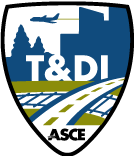
Dr. Heng Wei is currently a professor of transportation systems and engineering, the director of the civil engineering program, and the founding director of the Advanced Research on Transportation Engineering and Systems (ART-Engine S Lab) at the University of Cincinnati (UC). Prior to joining UC in 2004, Dr. Wei was a faculty lecturer in transportation engineering at the University of Southern California and California State Polytechnic University at Pomona. He has approximately 5 years of industry experience through several projects including Illinois DOT’s TMC Software System Upgrade, US National ITS Architecture Maintenance, Michigan DOT’s ITS Center Maintenance, and Wisconsin DOT’s freeway system operations assessment. His other work in the industry includes transportation planning and travel demand forecasting, and traffic impact and signal control improvement projects for cities in Kansas, Missouri, and California.
Among his many accomplishments, Dr. Wei developed Vehicle Video Capture Data Collector (VEVID), an innovative video-capture method for video extraction of vehicle trajectory data from multiple lanes and an accompanying software tool, which served as a basis for subsequently securing research grants from the FHWA, ODOT, NSF, and US EPA. Through these projects, Dr. Wei has made significant contributions to traffic driving behavior analysis, dilemma zone dynamics, and vehicle classification using dual-loop sensors. His other contributions to transportation engineering research includes the development of a novel theoretic framework for transportation emergency evacuation planning models and an innovative intelligent dynamic traffic control system for freeway bottlenecks and work zones. Dr. Wei also developed the Integrated Urban Emergency Evacuation Contingency Plan (IUE2CP), in partnership with Beijing University of Technology for a Beijing Olympic Games research project in 2007. The results were highly influential and introduced in two books, Methods and Applications for Emergency Traffic Evaluation Planning and Best Practices in the Integration of ITS, Public Safety, Security, and Emergency Management as well as several published journal papers. Additionally, he developed the Traffic Air Environmental Health Impact Analysis (TAEHIA, jointly funded by FHWA and Ohio DOT) and Air Impact Relating Scenario-based Urban Settings and Transportation Assets In Network. TAEHIA aims to transform the existing permanent traffic monitoring data and air quality monitoring data into the automated process of traffic conformity project studies, with extended capability to address public health problems due to transportation activities. Finally, he spearheaded the EPA-funded AIR-SUSTAIN project, AIR-SUSTAIN provides a GIS¬based digital platform to analyze land-use and social economy adaptations to climate changes by the integrating the regional-level and project-level transportation environmental impacts. Currently, the AIR-SUSTAIN is being integrated into the U.S. Environmental Protection Agency’s (EPA) Smart Urban Development (SUD) simulation platform for climate adaptation.
In addition to his research activities, Dr. Wei is currently the Chair of the T&DI Emerging Technologies Council, Co-Chair of Sub-committee on Events Organization for TRB Standing Committee on AI and Advanced Computing Applications (AED50), and Chair of IEEE ITSS Travel Information and Traffic Management Committee. He is also currently a member of several other professional committees within and outside of T&DI. In the past, he has served as President of the Board of Directors for the China Overseas Transportation Association (COTA). Dr. Wei has also been the proceedings editor for the International Conference on Transportation and Development (ICTD) since 2022, and was the lead editor and one of the authors of the ASCE publication Disruptive Emerging Transportation Technologies, published in April 2022.
ASCE named Dr. Wei a Fellow in September of 2020. He’s been an ASCE member since 2005. He earned his bachelor's degree and first master’s degree in civil/highway & traffic engineering from the Beijing University of Technology (1985,1988) and his second master’s and Ph.D. from the University of Kansas (1996, 1999).


